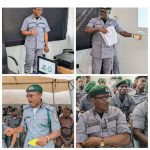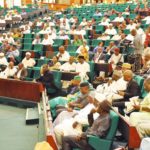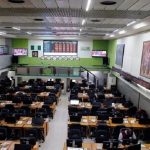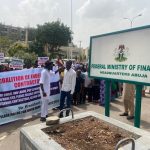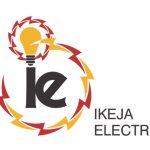World
Nigeria, Others Discuss Child Labour in Artisanal and Small-scale Gold Mines
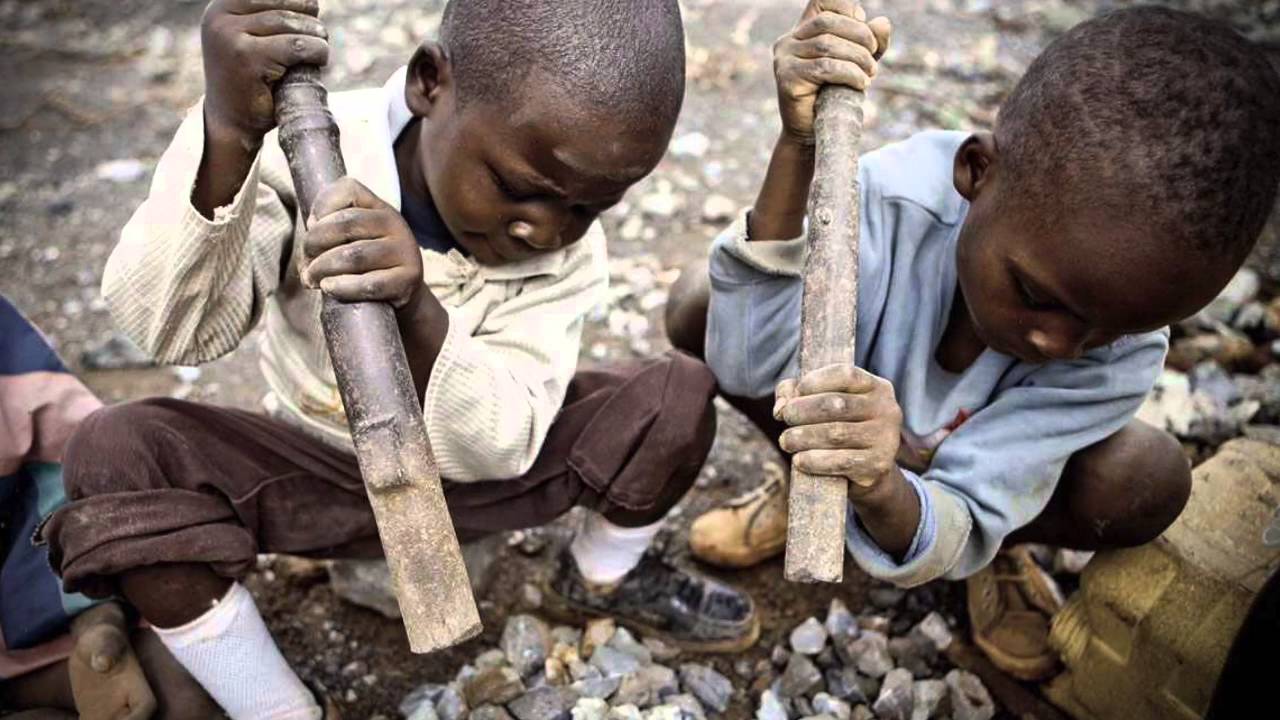
Experts and global actors from Africa, Asia and South America gathered in Manila to address child labour and poor working conditions in artisanal and small-scale gold mines (ASGM).
The first-ever Inter-regional Knowledge-Sharing Forum on Child Labour and Working Conditions in ASGM of the International Labour Organization (ILO) served as a platform for dialogue.
Governments, employers’ and workers’ organizations, international non-government organizations, civil society organizations, miners’ groups and their communities, and ASGM supply chain actors joined the forum.
Countries represented were Colombia, Congo, Cote d’ Ivoire, France, Ghana, Guyana, Indonesia, Italy, Mali, Mongolia, Nigeria, Philippines, Thailand, Switzerland, United Kingdom and the United States.
“Jobs in artisanal and small-scale gold mines are often linked to poor working conditions, with limited rights and access to social protection, without a voice and freedom to join unions.
Miners risk their safety and health even without stable income to lift their families out of poverty. Of great concern are children working in these mines, which is one of the worst forms of child labour,” said Khalid Hassan, Director of the ILO Country Office for the Philippines.
ILO estimates in 2011 revealed that 19,000 children work in 45 artisanal and small-scale gold mines in the Philippines. Children can be found inside mining tunnels or on surface collecting gold and hauling sacks of ore or smelting gold.
The sector is associated with many labour issues such as hazardous working conditions that have led to work-related injuries, diseases and deaths. Child labour is also present in different mining stages. Evidence from various ILO surveys and research studies show that mining is by far the most hazardous sector for children with respect to fatal injuries.
“We should continue to zero-in on families as they need to know the risks involved in sending their children away for work. Child labour is not the solution to the households’ economic problems, rather, it creates long-term problems. This forum is a step forward to be more responsive and to provide us with the necessary tools to address child labour and other labour issues in ASGM,” said Secretary Silvestre Bello III of the Department of Labor and Employment (DOLE).
The 3-day forum held on May 28 to 30, 2019 in Manila provided a venue to exchange knowledge, technologies, practices and challenges to put forward concrete solutions to address child labour and poor working conditions. The forum also looked at the impact of the sector on people and the environment.
“We are well aware of negative impacts of ASGM on people and the environment. Most of the operations in the sector continue to work without permits and mining practices are not covered by government regulation. This is mainly the reason why two of the worst issues in the mining sector – child labour and working conditions – are common in ASGM,” said Secretary Roy Cimatu of the Department of Environment and Natural Resources (DENR).
Implemented under the ILO CARING Gold Mining Project (Convening Actors to Reduce child labour and Improve working conditions in ASGM), which is funded by the United States Department of Labor (USDOL) , the forum linked issues of child labour and working conditions to decent work and compliance with Fundamental Principles and Rights at Work for workers, families and communities in the sector.
“The United States is proud to support these efforts through the US Department of Labor. The 3-year programme aims to reduce child labour and address working conditions in the sector in Ghana and the Philippines. This is one part of a broader effort by the United States to support human and labour rights in the Philippines, and beyond,” said US Ambassador to the Philippines Sung Yong Kim.
Although there are various global organizations working on ASGM issues, concerns on child labour and other labour-related issues could be better coordinated, especially at the local level. Knowledge and action to eradicate child labour also need to be expanded in line with relevant international labour standards.
The International Training Center (ITC) of the ILO organized the forum, with support of the USDOL, Organization for Economic Cooperation and Development (OECD), the United Nations Environment Programme (UNEP), Alliance for Responsible Mining (ARM), DOLE, DENR, and BanToxics, and other partners.
World
Afreximbank Terminates Credit Relationship With Fitch Amid Rating Tension

By Adedapo Adesanya
African Export-Import Bank (Afreximbank) has has officially terminated its credit rating relationship with Fitch Ratings, indicating friction between both firms.
According to a statement on Friday, the Cairo-based African lender said the decision follows a review of the relationship, and its firm belief that the credit rating exercise no longer reflects a good understanding of the bank’s Establishment Agreement, its mission, and its mandate.
“Afreximbank’s business profile remains robust, underpinned by strong shareholder relationships and the legal protections embedded in its Establishment Agreement, signed and ratified by its member states,” the statement added.
Business Post reports that Fitch had cut Afreximbank’s credit rating to one notch above ‘junk’ Status last year and currently has it on a ‘negative outlook’, which is a rating agency’s terminology for another downgrade warning.
Lower rating means higher borrowing costs for Afreximbank, which could directly impact its ability to lend and the low rates at which it does so.
Recall that Fitch in its report published in June 2025, had estimated Afreximbank’s non-performing loans at 7.1 per cent by the end of 2024, exceeding Fitch’s 6 per cent “high risk” threshold.
The African Peer Review Mechanism (APRM) contested Fitch’s assessment and argued that Fitch confused loan restructuring requests from South Sudan, Zambia, and Ghana by considering them as defaults, claiming this was inconsistent with the 1993 treaty establishing Afreximbank.
African policymakers have raised worries about the ratings by foreign rating agencies like Fitch, Moody’s, and S&P among others. This has increased call for an African focused agency, which is expected to have commenced but continues to face delays.
World
Putin Receives New Foreign Ambassadors in Bolshoi Kremlin Palace
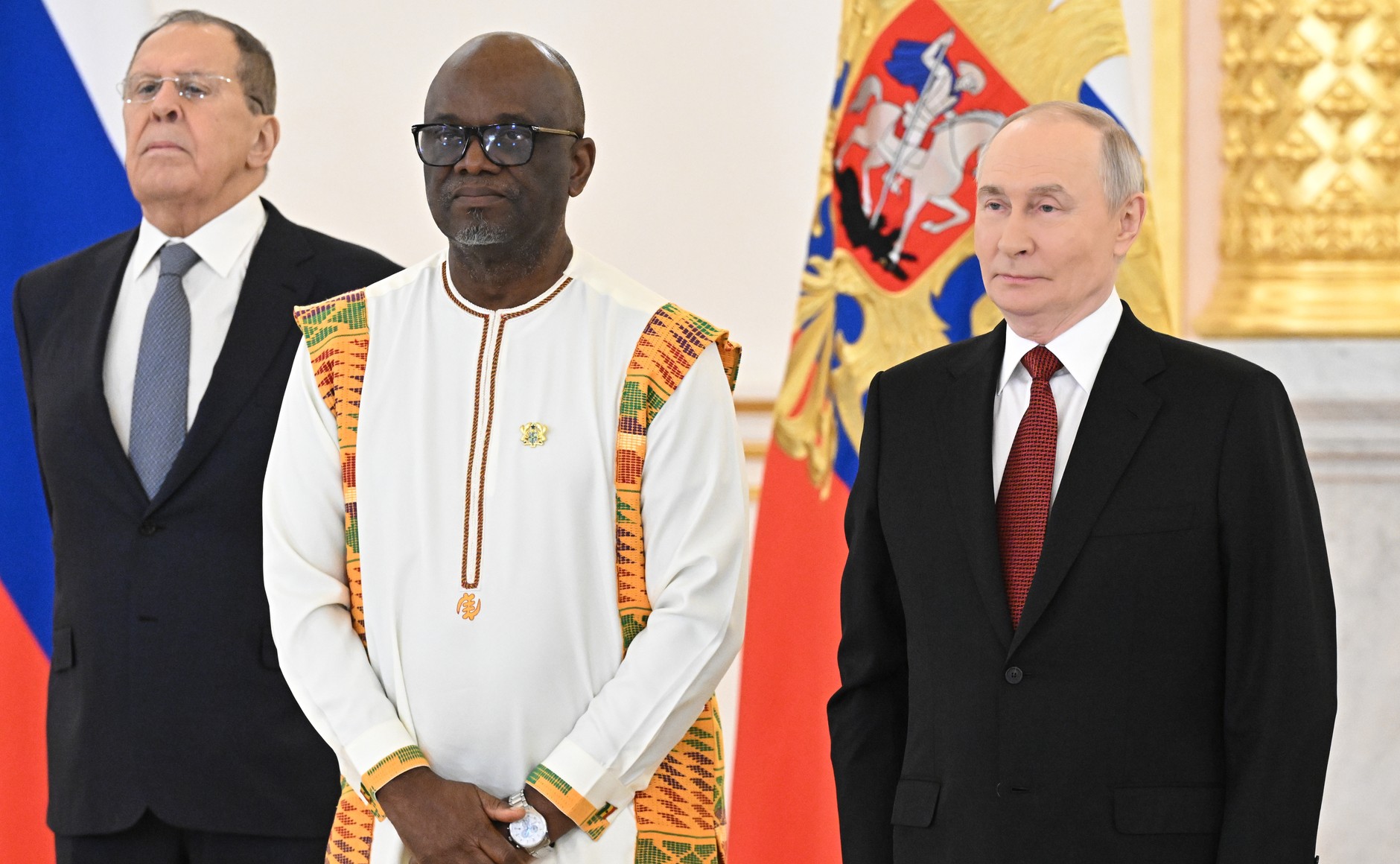
By Kestér Kenn Klomegâh
The geopolitical situation and the economic architecture are rapidly changing, creating new conditions for Russia to get committed to the ideals of a multipolar world, President Vladimir Putin said at a ceremony to receive diplomatic credentials from newly appointed foreign ambassadors in Alexandrovsky Hall of the Bolshoi Kremlin Palace.
“Our country has always pursued and will continue to pursue a weighted, constructive foreign policy course that takes into account both Russia’s national interests and the objective global development trends. With all partners interested in cooperation, we are set to maintain truly open and mutually beneficial relations, deepening ties in politics, economy, and humanitarian sphere,” Putin emphasized in his speech.
For Putin, Russia is ready to work with countries that are strategic partners, with whom it is united by friendship, cooperation and mutual support and with whom it is ready to work together in international business structure.
In the Kremlin was a large group of ambassadors from African countries: Somalia, Gabon, Senegal, Rwanda, Mauritania, Algeria, Ghana and Namibia who Putin received in the official ceremony, noted particularly that “Russia is connected with all the states of the continent by the relationship of genuine partnership, support and mutual benefit.”
According to him, the foundations of these relationships were laid back during the struggle of African peoples for freedom and political independence. And Russia has made a significant contribution to the liberation of African countries from colonial rule, contributed tremendously to attaining their statehood, and to the development of national economies, social sphere, and training and education.
Russia was and remains committed to such approaches and is ready to restore the necessary level of relations. With heightening of new global trends, Russia invariably aims to expand mutual political, economic and humanitarian contacts. Russia will continue to provide assistance to Africans in their quest for development, for active participation in international affairs.
These issues were discussed at the Russian-African summits in Sochi and St. Petersburg, at the meeting of the Russian-African Foreign Ministers’ Partnership Forum in Cairo, Egypt. Russia and Africa are both preparing to hold this year’s regular, the third Russia-Africa summit.
In general, Russia is open to mutually beneficial cooperation with all countries. And naturally, are interested in making the activity of each of the ambassadors as effective as possible. With useful initiatives proposed by ambassadors will receive support from the Russian leadership, executive authorities, entrepreneurs and civil society. “Let me wish you success and all the best in your work,”concluded Putin.
World
Abebe Selassie to Retire as Director of African Department at IMF
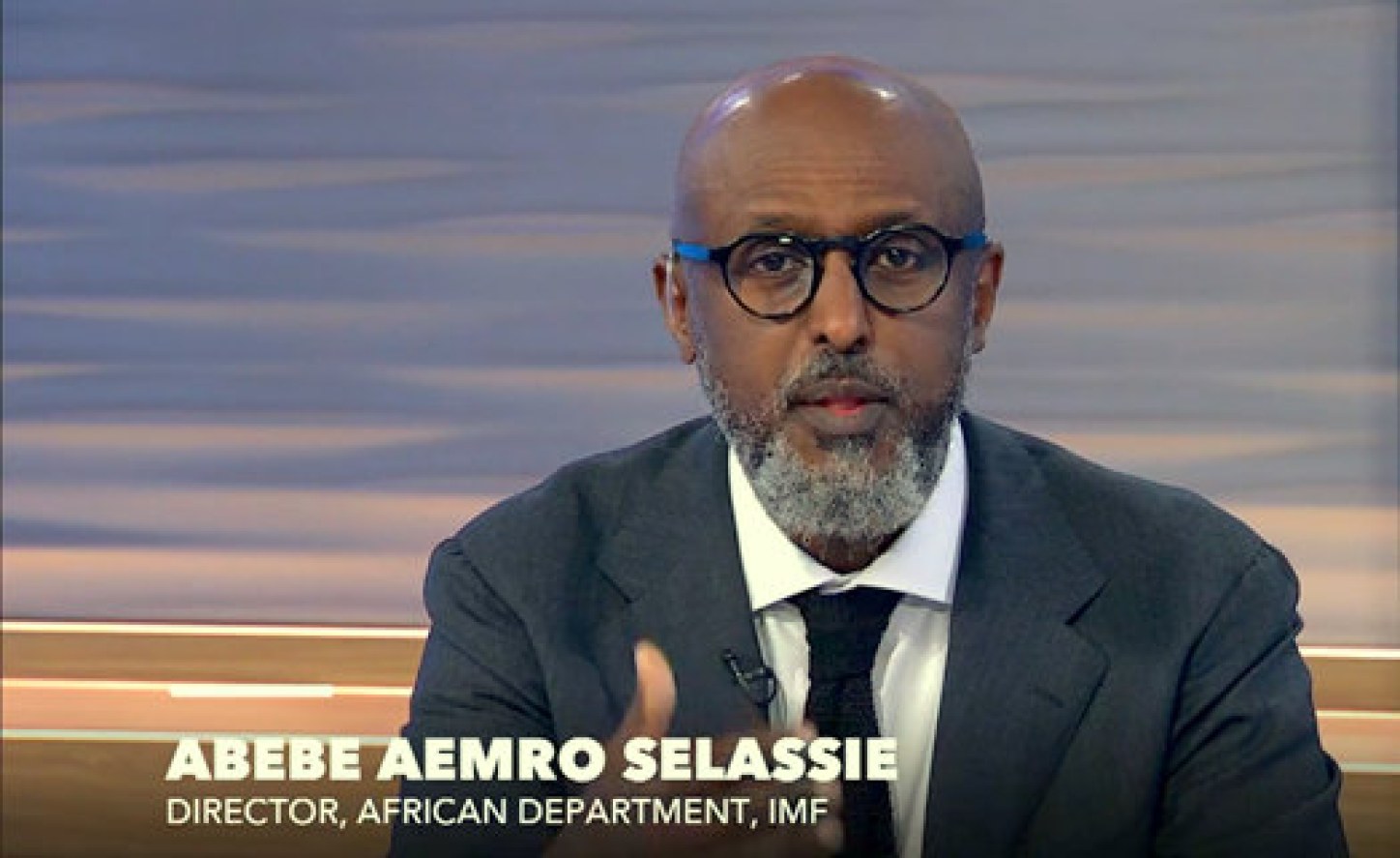
By Kestér Kenn Klomegâh
The International Monetary Fund (IMF) has announced the retirement of its director of the African department, Abebe Aemro Selassie, on May 1, 2026. Since his appointment in 2016, Abebe Selassie has served in this position for a decade. During his tenure, IMF added a 25th chair to its Executive Board, increasing the voice of sub-Saharan Africa.
As a director for Africa, he has overseen the IMF’s engagement with 45 countries across sub-Saharan Africa. Abebe and his team work closely with the region’s leaders and policymakers to improve economic and development outcomes. This includes oversight of the IMF’s intensified engagement with the region in recent years, including some $60 billion in financial support the institution has provided to countries since 2020. Reports indicated that under his leadership, his department generally reinforces the organization’s role as a trusted partner to many African countries.
Abebe Selassie has worked with both the regional economic blocs and the African Union (AU) as well as individual African states. The key focus has been the strategic articulation of Africa’s development priorities in reshaping economic governance, mobilizing sustainable investments, and addressing systemic financial challenges.
It is important noting that the IMF has funded diverse infrastructure projects that facilitated either export-led growth or import substitution industrialization models of development. Further to that, African states have also made numerous loans and benefited from much-needed debt relief.
Summarizing the IMF’s key focus areas, among others, for Africa: (i) reforming the global financial architecture in an effort to improve the structure, institutions, rules, and processes that govern international finance in order to make the global economy more stable, equitable, and resilient.
Concessional financing to counter rising borrowing costs, with Africa paying up to 5 times more in interest than advanced economies (AfDB, 2023). Fair representation, pushing for IMF quota reforms to reflect Africa’s $3.4 trillion collective GDP—yet the continent holds less than 5% of voting shares in Bretton Woods institutions.
(ii) Unlocking Investments for Jobs and Sustainable Growth. With Africa’s working-age population set to double to 1 billion by 2050, the African states spotlight: The African Continental Free Trade Area (AfCFTA), projected to boost intra-African trade by 52% and create 30 million jobs by 2035 (World Bank, 2024). Infrastructure partnerships, targeting sectors such as renewable energy, where Africa receives only 2% of global clean energy investments despite its vast solar and wind potential (IEA, 2024).
(iii) Climate Finance and Debt Relief for Resilience: Africa contributes less than 4% of global emissions but bears the brunt of climate shocks, losing 5–15% of GDP per capita to climate-related disasters annually (African Development Bank, 2024). These are strictly in alignment with Agenda 2063’s aspirations for inclusive growth, maximizing multilateral cooperation and enhancing global engagement with the continent.
“I am deeply grateful for Abe’s visionary leadership, dedication to the Fund’s mission, and unwavering commitment to the members in the region,” Ms. Kristalina Georgieva, Managing Director of the International Monetary Fund (IMF). “The legacy he leaves on the Fund’s work in Africa is one of alignment with the aspirations of people, especially the youth, for good governance, strong economies and lasting prosperity. His trusted advice has been invaluable to me personally, and his leadership has strengthened our mission.”
“A national of Ethiopia, Selassie first joined the IMF in 1994. Over his remarkable 32-year career, he held senior positions including Deputy Director in AFR, Mission Chief for Portugal and South Africa, Division Chief of the Regional Studies Division, and Senior Resident Representative in Uganda. Earlier, he contributed to programs in Turkey, Thailand, Romania, and Estonia, and worked on policy, operational review, and economic research.”
Under his ten-year leadership and as director of the African Department (AFR), Abebe Selassie helped to reinforce the Fund’s role as a trusted partner with sub-Saharan African members. The International Monetary Fund (IMF) is an international organization that promotes global economic growth and financial stability, encourages international trade, and reduces poverty.
-

 Feature/OPED6 years ago
Feature/OPED6 years agoDavos was Different this year
-
Travel/Tourism9 years ago
Lagos Seals Western Lodge Hotel In Ikorodu
-

 Showbiz3 years ago
Showbiz3 years agoEstranged Lover Releases Videos of Empress Njamah Bathing
-

 Banking8 years ago
Banking8 years agoSort Codes of GTBank Branches in Nigeria
-

 Economy3 years ago
Economy3 years agoSubsidy Removal: CNG at N130 Per Litre Cheaper Than Petrol—IPMAN
-

 Banking3 years ago
Banking3 years agoSort Codes of UBA Branches in Nigeria
-

 Banking3 years ago
Banking3 years agoFirst Bank Announces Planned Downtime
-

 Sports3 years ago
Sports3 years agoHighest Paid Nigerian Footballer – How Much Do Nigerian Footballers Earn





